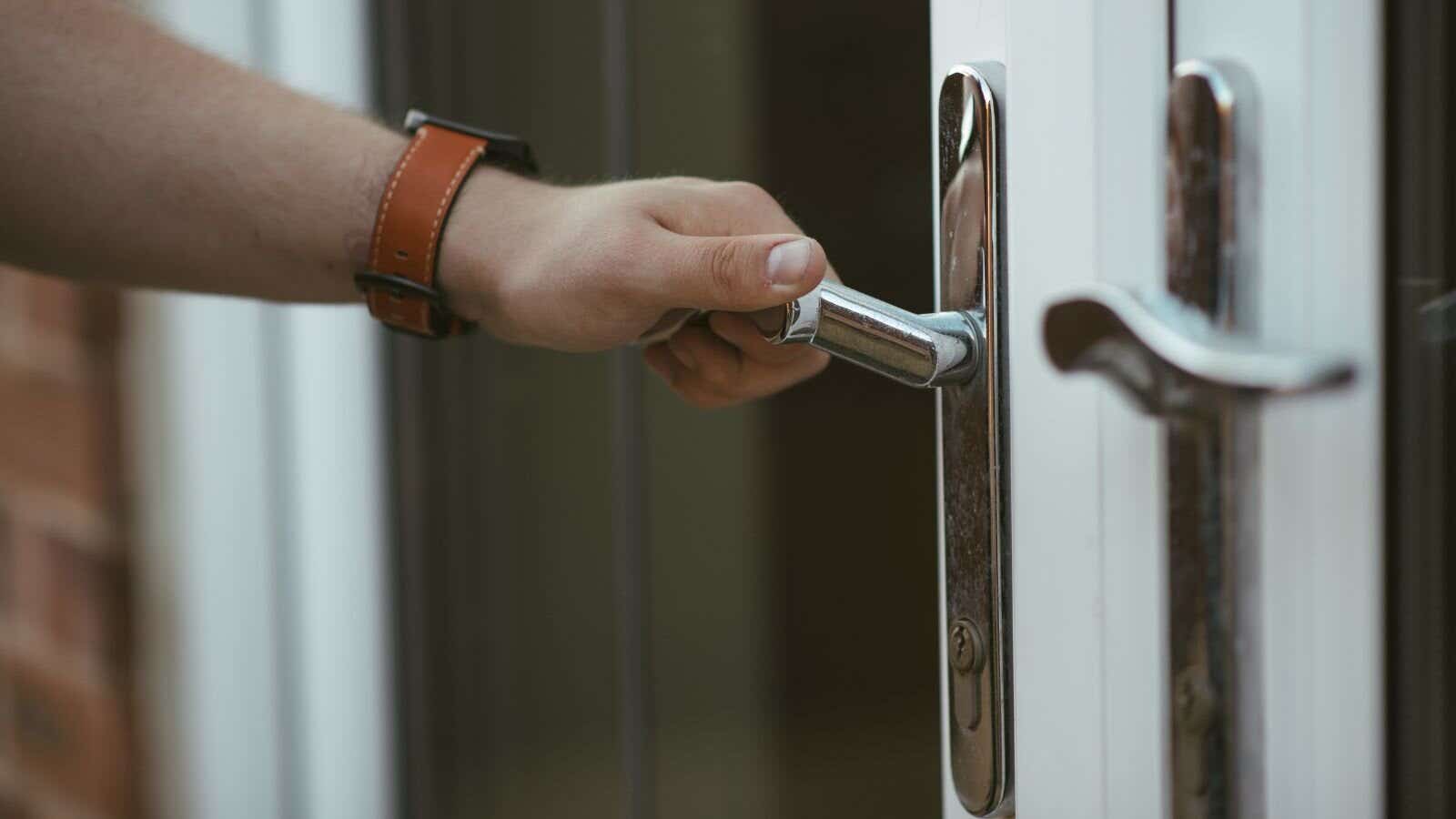Compare home insurance quotes
See a range of home insurance quotes in just a few minutes when you compare with Uswitch
What are the different types of patio door locks?
There are three main patio door lock types. If your home has patio doors, you’ll be asked if you have any of these three types you have when you apply for home insurance.
Type 1: Central rail key-operated lock
This is a type of multi-point locking system, which means it does not rely on a single lock, making it more secure. The locks are fitted to the central rail where two patio doors overlap.
- Pro: This secures your patio door at several points
- Con: Not as secure as a key-operated multi-point locking system.
Type 2: Key-operated multi-point locking system
This is a locking system that bolts the patio door into its frame at as many as five locking points with a single key turn.
- Pro: With up to five locking points, it is very difficult for intruders to force their way in.
- Pro: This type of lock only requires a single key cylinder.
- Pro: Key cylinders are relatively easy to upgrade or change.
- Con: To ensure the lock is properly engaged, you need to remember to raise the door handle and double-lock the door.
Type 3: Top and bottom key-operated lock
This is the most basic of these three types of patio door locks. This kind involves two key-operated locks that bolt into the top and bottom of the patio door frame.
- Pro: A cheaper option than the two alternatives above
- Con: As the locks are at the top and bottom of the frame, the centre of the door can be less secure and therefore more vulnerable to attempted break-ins.
If your patio doors do not have any of the three types of locks listed above, you could consider upgrading – both to make your home more secure and, potentially, to reduce the cost of insurance.
Why would I need to know what type of patio door locks I have?
When you apply for home insurance, you need to provide information to potential insurers to help them assess the risk of you being burgled, among other things. Knowing what type of doors and windows you have, as well as how they are secured, is an important part of this process.
Will approved patio door locks give me cheaper home insurance?
Certain types of locks are described as being ‘approved’ by the insurance industry. This means they offer a high level of security. Having approved locks on your external doors and windows can make you eligible for lower insurance premiums. Approved locks can be especially important on your patio doors, as these doors are often targeted by burglars when they attempt to break into homes.
What are the different types of patio doors?
There are three distinct types of patio doors, as follows.
Sliding doors:
This is a type of patio door where one door panel slides along a rail alongside another glass panel to provide the opening.
French doors:
This refers to two glass-panelled doors that can both be opened, usually outwards.
Bifold doors:
Bifolds are a number of glass panels that are connected by hinges. These can be folded back on themselves to provide a much larger opening than other types of patio door.
Compare home insurance quotes
See a range of home insurance quotes in just a few minutes when you compare with Uswitch

